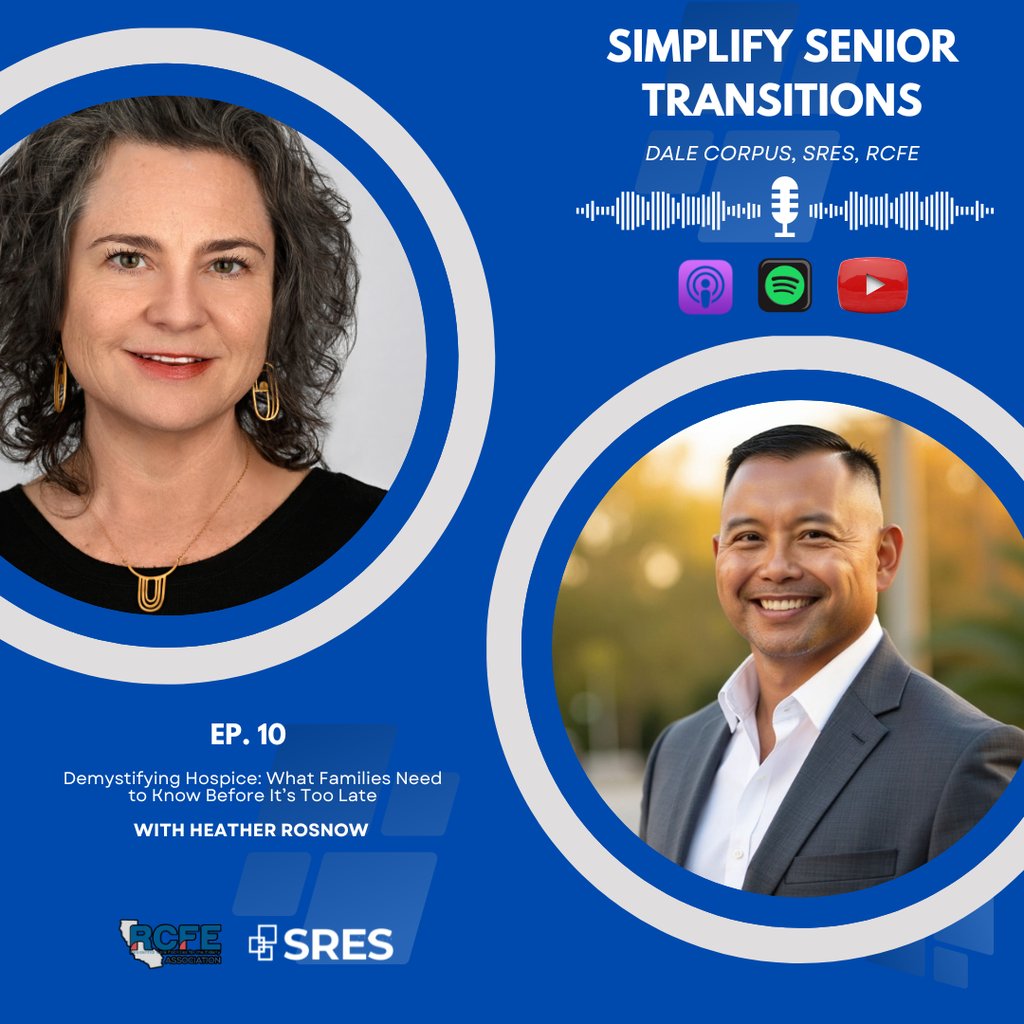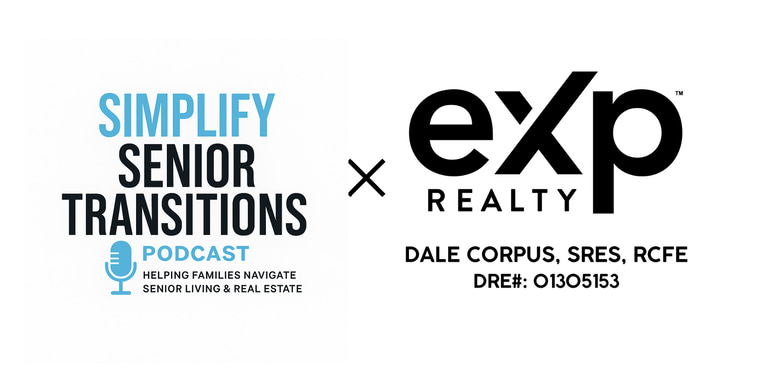Hospice Isn’t Giving Up — It’s Choosing Comfort, Dignity, and Support
Heather Rosnow of Pathways demystifies hospice care and shares how families can take back control during life’s most tender transitions
Dale Corpus
4/9/20254 min read
Navigating the journey of senior transitions for aging parents can feel like an overwhelming odyssey, especially for adult children balancing their own lives with the immense responsibility of caregiving.
The myriad of decisions—from choosing the right care options to managing the emotional toll—can leave families feeling lost and alone. That's why we brought in Heather Rosnow, a seasoned client relations executive with Pathways Home Health and Hospice, on the Simplify Senior Transitions Podcast. With decades of experience across the senior care space, Heather is deeply passionate about educating families and building strong professional communities around care. Her insights are invaluable for families in the San Francisco Bay Area, including Contra Costa, Alameda, Santa Clara, San Mateo, and San Francisco counties, looking to understand hospice care better and make informed choices for their loved ones.
Here's what you'll learn in this episode:
Understanding Hospice: More Than "Giving Up"
The biggest misconception about hospice is that it means giving up or that your loved one will die tomorrow. Heather powerfully refutes this, emphasizing that hospice is about comfort care, focused on keeping a person comfortable and pain-free when they have a terminal illness and have decided to stop curative treatments. It’s about letting nature take its course while ensuring extreme comfort. Heather shared her personal experience, stating firmly that it is "absolutely just the opposite" of giving up. The goal is for your loved one to be comfortable in their mind, body, and spirit, continuing to live their best life, even going on trips or to the theater if they wish.Hospice vs. Palliative Care: Knowing the Difference
This is a crucial distinction. Palliative care allows individuals to receive comfort care while still pursuing curative treatments for their diagnosis, such as chemotherapy for cancer. You might have a nurse, social worker, and home health aide, but they won't be as frequent as with hospice. Hospice, on the other hand, is chosen when someone decides to stop curative treatments for their terminal illness because they no longer wish to continue or are not doing well with their diagnosis. However, if a hospice patient develops a secondary illness unrelated to their terminal diagnosis (e.g., an Alzheimer's patient developing cardiac issues needing a pacemaker), they can still receive treatment for that secondary condition.When to Start the Conversation (and Why Sooner is Better)
Families often wait too long, but starting early allows for building rapport and trust with the hospice team. You are not "signing your life away." The patient and family are always in charge of care; you can revoke hospice services at any time to pursue aggressive treatment again, and even come back on hospice later if needed. Red flags that indicate waiting too long include the patient being in excruciating pain or the family struggling with immense suffering. The sooner someone qualifies, the more support they can receive to navigate this difficult time. Patients have been on hospice for months, even up to three years, benefiting from continuous support.The Comprehensive Hospice Support Team
Hospice provides a robust support system available 24/7. A core team includes an RN case manager, a social worker (supporting both the patient and the entire family), and a home health aide. Additionally, there are volunteers who can offer companionship, read to patients, or even bring therapy pets. Many hospices also offer non-denominational spiritual care. When you sign on, you'll receive a comfort kit with medications for relaxation or pain relief. Hospice also rapidly provides necessary medical equipment like hospital beds, commodes, and personal care supplies, often within hours. While it might seem overwhelming initially with many calls, the team works together, and you have one 24-hour number for questions or concerns.Financial Peace of Mind
One of the biggest reliefs for families is that hospice care is typically covered 100% by Medicare and most other insurances. This significantly reduces the financial burden, allowing families to focus on their loved one's comfort and well-being.Your Control and Flexibility
You, as the patient or family, are always in control. If you're on hospice and it's not working out, you have the right to transfer to a different company. Hospice care is also provided wherever your home is, whether that’s your private residence, an assisted living facility, or a skilled nursing facility.Emotional Support for Caregivers
The emotional toll on family caregivers is immense. Heather shared that she often hears, "I wish I would have done this sooner." Hospice teams work closely to support caregivers, offering guidance, connecting them to support groups, and even providing respite care for up to five days so caregivers can rest or attend important events. This support can help alleviate the feeling of being alone and overwhelmed, allowing families to simply "be family"again. Beyond the patient's passing, hospice continues to offer bereavement services, including private counseling sessions and support groups tailored to different types of loss, helping families process their grief for an extended period.
Understanding these aspects of hospice can transform a difficult transition into a period of comfort, peace, and supported care for both your parent and your entire family. The support offered can free up mental and emotional space, allowing families to better navigate other aspects of senior living transitions, such as downsizing or selling a senior’s home, knowing their loved one's immediate care needs are expertly met.
If you're an adult child in the Bay Area helping your aging parents navigate the complexities of senior living, including making decisions about care options, downsizing, or selling a senior’s home, we understand it can be incredibly stressful. Let us help simplify the process for you.
📞 Schedule a FREE consultation today to discuss your unique situation and find tailored solutions: www.simplifyseniortransitions.com
🎙️ For more in-depth insights and personal stories, listen to the full episode "What Families Need to Know About Hospice (Before It’s Too Late)" on the Senior Transition Real Estate with Dale Corpus YouTube channel.
📲 You can also connect directly with Dale Corpus via Instagram: @soldbydale
✉️ P.S. Got news or an amazing story to share? Hit us up at dale.corpus@exprealty.com and you might be featured in our next episode!
Watch The Podcast Here



Transitions Made Simple
Helping seniors transition with ease and peace.
📍 Serving the San Francisco Bay Area
📞 GET IN TOUCH
📬 STAY INFORMED
Dale Corpus, SRES, RCFE
📱 925-380-1657
📧 dale@simplifyseniortransitions.com
🕓 Available for free 15 min consultations by appointment
© 2026. All rights reserved.
Sign up for monthly senior transition tips & real estate insights.
